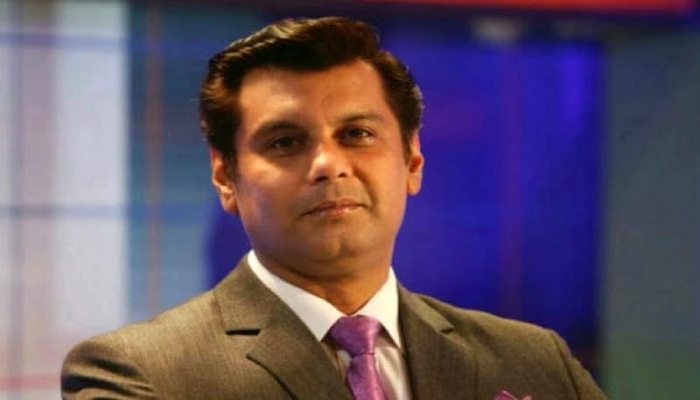India stranded as region readies for Iran’s surge
0 comments | by M.K. Bhadrakumar

The Wall Street Journal report today with Islamabad dateline quoting local officials that China is willing to build the Iran-Pakistan [IP] gas pipeline doesn’t come as surprise. But the apparent finality about what has been up until now in the realm of intelligent speculation signifies a tectonic shift in the politics of the region.
The expected dismantling of the sanctions regime against Iran is triggering reverberations in regional politics and the IP gas pipeline project is evidence of it. Tehran, Islamabad and Beijing are positioning themselves to tap into the new vistas opened by Iran’s integration into the international community.
The IP pipeline eminently qualifies to become part of China’s ‘Belt and Road’ initiative, with the underpinning provided by the Asian Infrastructure Investment Bank and China’s Silk Road Fund. There is a strong likelihood that the pipeline will get extended to China along the so-called Economic Corridor that is being planned via the Karakorum.
Conceivably, Iran will welcome an extension of the IP pipeline into China, which, in political terms, would make Beijing a ‘stakeholder’ in the Iran-Pakistan relationship and in turn help stabilize that troubled relationship. A China-Pakistan-Iran strategic axis built on shared concerns of regional stability has far-reaching implications for an entire arc of countries stretching from the Persian Gulf through Afghanistan and Central Asia to China’s Xinjiang Autonomous Region.
Needless to say, the realization of the IP pipeline, overcoming the pressure from Saudi Arabia on Pakistan to desist from going ahead with the project, constitutes a major policy statement by Islamabad. Simply put, Islamabad is probing a way out of the stranglehold of the Saudi orbit, finally.
The Saudi embrace has been a blessing and a curse for Pakistan and Iran will be the net beneficiary if Pakistan asserts its independence from Saudi Arabia.
China’s involvement in the IP pipeline will mean that the Chinese presence in Gwadar is being stepped up dramatically. Pakistan, in turn, is poised to become a major transit route for China to the markets in the Persian Gulf, West Asia and Africa. In sum, Sino-Pakistani strategic partnership is about to touch a qualitatively new level.
On the other hand, the focus on the IP pipeline dampens the prospects of the alternate Turkmenistan-Afghanistan-Pakistan-India [TAPI] gas pipeline, which the US has been promoting. China wouldn’t want the Turkmen gas reserves to be diverted to South Asia, while Iran too has been averse to competition from the TAPI. In short, India’s hopes of having the TAPI may turn out to be a mere ‘pipe dream’.
From the Indian viewpoint, this is of course a sad moment. Isolation in one’s own region is never a good thing to happen, but Indian diplomacy seems to be failing to build partnerships riveted on regional cooperation.
The blame lies entirely with the Narendra Modi government. The Modi brand of foreign policy is largely built on hot air and grandstanding and lacks substance. Very little conceptual thinking seems to be going into Modi’s foreign-policy peregrinations. It is all turning out to be sound and fury signifying nothing.
The Modi government doesn’t know how to respond to China’s ‘Belt and Road’ initiatives; it has one foot inside the US’ ‘pivot strategy in Asia’ and another foot outside; it plays the ‘Tibet card’ against China but also expects Chinese investments to pour in; and, it regards China as an intruder into its sphere of influence in South Asian and Indian Ocean region.
As for Pakistan, the less said the better. No one knows what is on Modi’s mind. His government keeps blowing hot and cold. The Pakistani side seems to have understood that Modi is in no real hurry to resolve the disputes and differences between the two countries, and is marking time. Accordingly, it has decided not to unduly press India further for a constructive engagement with India.
When it comes to Iran, that country also probably senses that in the scheme of things of the Hindu nationalist government in India, Islamophobia is the leitmotif for the Hindutva ideologues. The Modi government has neglected to mend India-Iran ties, which have been in a state of disrepair.
The Modi government never really understood the dynamics and alchemy of the US-Iranian engagement through the past year. The stunning fact is that there has not been a single high-level visit from India to Iran during Modi’s stewardship through the past 10-month period. It must be a world record of sorts.
Thus, the plain truth is that India today lacks a coherent, consistent approach toward China, Pakistan or Iran. And no wonder, India is being visibly left behind at the station while the China-Pakistan-Iran train is pulling out.





